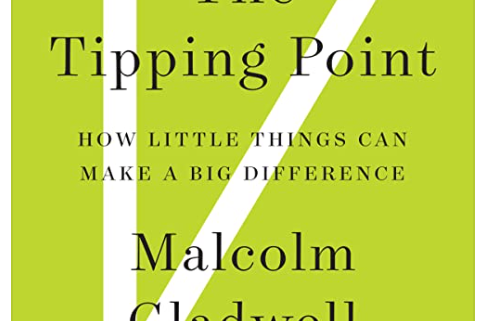Are you a Connectors, Mavens, or Salesmen?
As we approach our summer PDK gathering, Celebrating the Power of Connections, it’s a good time to reflect and consider the type of person you are as it relates to how you connect with others. In his book, The Tipping Point, Malcolm Gladwell describes three different types of people: Connectors, Mavens, and Salesmen.
Which are you?
Connectors are people specialists.
The following questions will help you decide whether you are a Connector:
- Do you know a lot of people?
- Do you like people?
- Do you tend to remember peoples’ names?
- Do you enjoy going to parties and meeting new people?
- Do you collect acquaintances?
If you answered ‘yes’ to four or five of these questions, you are a Connector.
The strength of Connectors is that they know and keep in touch with many people. They also tend to associate with other Connectors. Because of their rich network of friends and acquaintances, Connector is a trendsetter. The upside of a Connector is that he or she can create and maintain long-lasting friendships. The downside is that Connectors can be dazzled by their vast collection of acquaintances without investing in real friendships. Gladwell explains:
Connector are people who link us up with the world. People with a special gift for bringing the world together.
The power of Social Media on the Internet is the power of connectors. Power-users of Stumble Upon or Digg are Connectors. They can make or break the success of a blogpost because they are people specialists who cultivate a network of online friends.
Mavens are information specialists.
They are the ones who tell Connectors about what’s hot. They always have the newest inside scoops on gadgets and specials. The upside of Mavens is that they amass a vast store of knowledge and are eager to share it with others. The downside is that Mavens can sometimes be a bit geeky and awkward around people.
Here are some questions that will help you decide whether you are a Maven:
- Do you enjoy reading junk mail?
- Do you seek out the specials in your local supermarket?
- Do you tend to watch trends and know what’s ‘in’?
- Do you study the market before buying a new gadget?
- Do you tell your friends about special deals?
If you said ‘yes’ to four or five of these questions, you are a Maven.
Mavens want to educate, not to sell.
They take delight in finding out the special deals that will save them money. And they are interested in new technology. They are the ones on the Internet who are the first to investigate new software, or a new laptop or mobile phone. And they don’t keep what they find to themselves. They publish articles about their findings or let their social media friends know what they think.
Salesmen are charismatic.
They are able to build instant rapport with another person and gain their trust. That Salesmen are able to build rapport implies that they can tune in to others. But there is also another dimension: others find it easy to tune into the emotions of Salesmen. Gladwell explains that some people are very good at expressing emotions and feelings, which means that they are much more ‘socially contagious’ than others.
Here are some questions that will help you find out if you are a salesman:
- Do you find it difficult to sit still when hearing good dance music?
- Do you have a loud laugh?
- Do you touch friends when you talk with them?
- Are you good at seduction?
- Do you like being the center of attention?
If you answered ‘yes’ to four or five of these questions, you are a Salesman.
Salesmen make good politicians, spiritual teachers and pastors, and, well…salespeople. Salesmen are larger than life and can make others feel good with their high spirits. The downside of salesmen is that they can be dangerous if they use their charisma in order to manipulate others.
Are you a Connector, a Maven, or a Salesman?
Maybe the results aren’t clear cut? Most of us have some talent in all three areas. But there will be one area where you have answered most answers with ‘yes’. That is your primary orientation.
Now let’s take a look at what to do with this knowledge. How can knowing whether you are a Connector, a Maven, or a Salesman improve your life?
There are two basic schools of thought in the world of personal growth. One is that one should work on one’s weak sides in order to prosper. The other is that one should accept one’s weaknesses gracefully and focus on developing one’s strength. I tend to agree with the second strategy. For example, I pour my energy into becoming a better writer, instead of taking up painting – which is one of my talent wastelands.
The strategy of enhancing our talents means that we should foster the strength we have as a Connector, a Maven, or a Salesman.
- As a Connector we can focus on connecting others with each other, as well as creating groups where people feel at home.
- As a Maven, we can focus on sharing our information with others so that they can benefit from our research.
- As a Salesman, we can focus on making others happy with our good cheer.
What is your experience of being a Connector, Maven, or Salesman?
This summary was written by Mary Jaksch, author, Zen Master, a 5th degree blackbelt, and psychotherapist. She is the founder of Wellspring Relationship Training Program.
Shared by Jim Mills
Vice President for Program and Events, Buffalo/Niagara PDK


Leave a Reply
Want to join the discussion?Feel free to contribute!